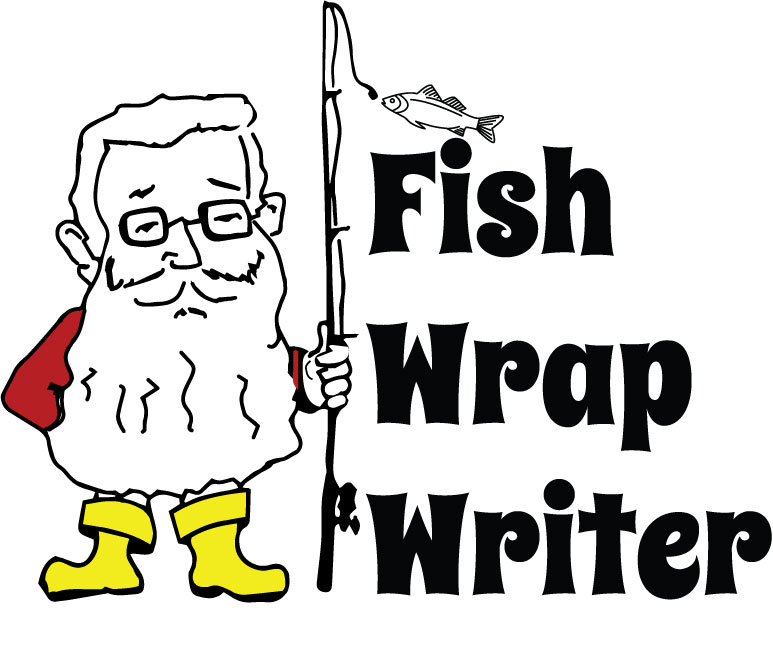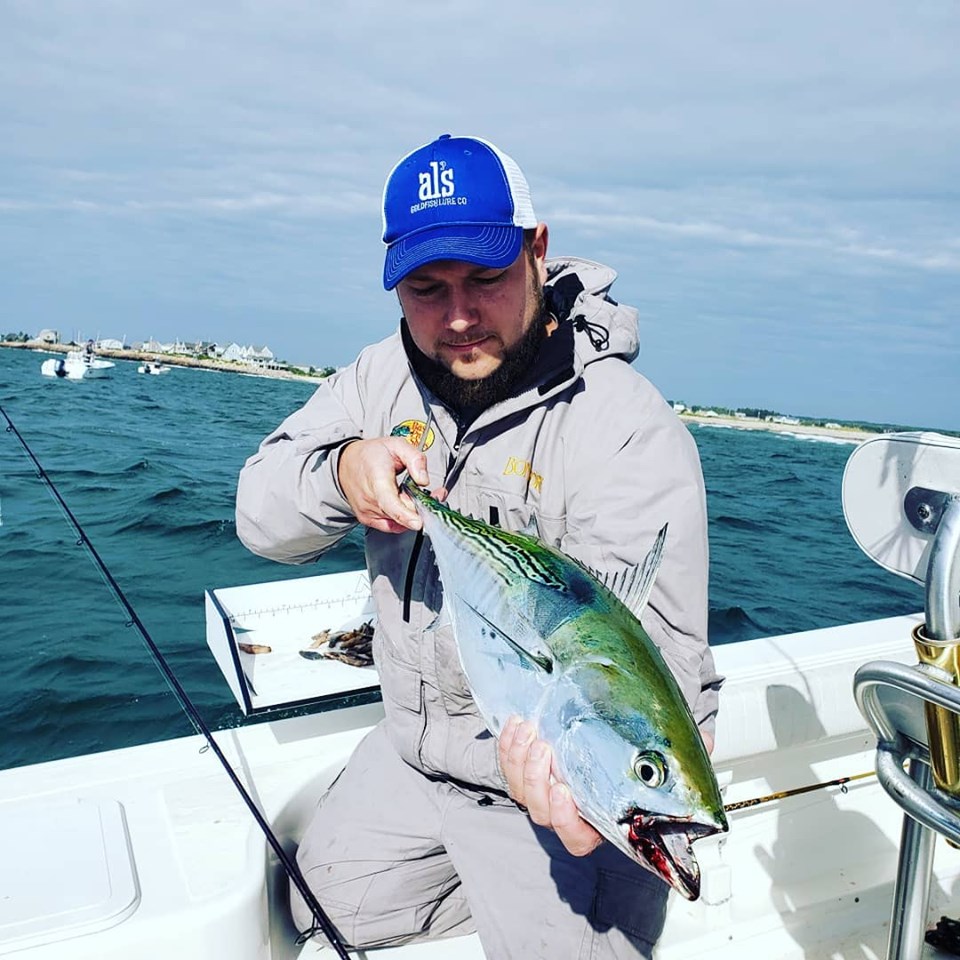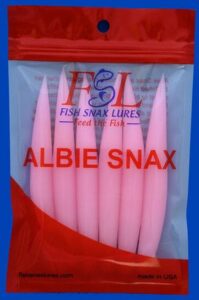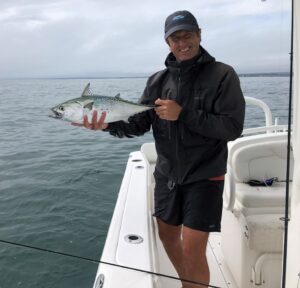Off the Center Wall. Near Tuna Ridge. In front of the Ocean Mist. In tight to the The Avenues. All sides of Block Island. Albies are all over these weeks and with tourists headed south to wave across 95 at their college kids heading north, all sports are looking for the beloved false albacore because albies are in bigtime.
Euthynnus alletteratus are fast, perhaps not as dashing as sailfish but you have far more chances of catching an albie in New England than a sailfish, especially one on the move at almost 70 miles per hour. Now false albacore have moved into local waters in large, fast-moving schools, affording us many weeks of albie fever, along with bluefish, stripers, tautog, scup, even cobia, in close enough for many anglers. The love affair is part thrill of the chase and part pure appreciation for their power and beauty. Few fish are as revered to patient anglers as these bonita.
False albacore are not actually albacore or tuna at all and are more closely related to mackerel. They can be confused with bonito, the local cousins of tuna, Sarda sarda. They will swim 40 miles per hour when chasing prey like bay anchovies and squid and when they corral a school of hapless baitfish, it’s the stuff of legendary heart palpitations and very creative sick day calls to day jobs. Waters can be greasy calm, seemingly devoid of action until everything gets shimmery nervous, surfaces turn smoky and then come explosions of fleeing and attacking fish. Glorious mayhem. Fly casters will angle to get just a few feet closer without pushing them down while spin anglers cast mightily to get anything shiny in the fray. They hunt by sight so if you see a storm in the forecast, it’s time to fish a lot before waters get cloudy and they head back offshore.
Hopefully Lee doesn’t spoil the albie party
Best lure choices? Everyone has a secret combination or color, but a few standouts are reliable. Albie Snax are popular, and their variety of colors will help you through all sorts of environmental conditions. I’ve landed a few slot-sized stripers this summer with pink versions. They’re a solid choice when you can’t figure out what they are feeding on and the quality is high, so they last a long while. Unless bluefish join the feed. Shiny tins like Deadly Dicks, Hogy Epoxy Jigs, and Point Jude Po-Jee’s have earned spots in September tackle boxes. The metals will cast a ways if you are trying to stay off the school and can be retrieved at varying speeds. Most people like lures tied directly to fluorocarbon leaders but at those speeds, a small bit of shiny terminal tackle will likely not cancel a hit. As albies are fast and their prey typically is not, a slower retrieve is often more productive, until excitement takes over. It’s hard being human sometimes.
For fly anglers, the venerable Clouser Minnow is unbeatable while variety is a blessing most days, don’t leave without several in chartreuse. Chartreuse has the distinction of being one of the last colors to remain visible at great depths due to its short wavelengths. Reds and yellows have longer wavelengths and will turn dull after just over a dozen feet but chartreuse hangs tough to one hundred feet in some conditions. Point is, the color works at several depths and fish love it. Surf Candy flies have a touch of weight in the nose and perfectly imitate silversides and sand eels. The last few weeks, I’ve watched sand eels being fired up out of the water and almost run away from stripers. With so much bait around, it’s no wonder albies are moving in. As long as your flies have some shine, a baitfish profile and a strong disposition to bites, you should be well equipped.
In this new and welcomed world of conservation, albies are mostly caught and released, even when they’re in bigtime. Freshly bled, iced, steaked and grilled, they do have a following of hearty consumers. Some go for the cat food or Fall fertilizer options but given how amazing albies are, racing by boats and jetties and how accessible they can be in many shallow water spots, they are just plain fun to chase, catch and release. If you do set one free, it’s nose first please. A quick clean dismount is the safest option to keep them alive after photos so they can feed hard and race back to deeper waters.









0 Comments